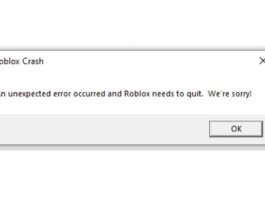
The troubled launch of Dragon’s Dogma 2 on Steam is more than just a disappointment for fans of the series; it’s a stark flashpoint in the ongoing battle between game developers, publishers, and a player base increasingly frustrated with monetization practices and technical shortcomings in modern titles.
Microtransactions: The Elephant in the Fantasy Room
Let’s dissect the core of the Dragon’s Dogma 2 controversy: microtransactions. It’s crucial to note this isn’t a new issue. Games across various genres, from mobile titles to big-budget releases, have incorporated microtransactions for years. Their inclusion often sparks debate, but the severity of the backlash varies wildly. So, what makes Dragon’s Dogma 2’s situation particularly volatile? Several factors converge:
- The Single-Player Experience: Dragon’s Dogma 2 is, fundamentally, a single-player RPG. Many players view single-player games as an experience they purchase outright, expecting its full breadth to be accessible through dedication and skill within the game’s design. Microtransactions blur this line, particularly when time-saving or progression-altering items are offered.
- A History of Paid DLC: The original Dragon’s Dogma and its expansions employed a traditional content model of larger, paid add-ons. This established an expectation for fans, making the shift to a microtransaction-heavy model feel more jarring.
- Community and “Culture Wars”: The gaming community isn’t a monolith. Some accept microtransactions in limited contexts, while others reject them entirely. Vocal elements on both sides clash in the cultural battleground, amplifying the situation and potentially drowning out more nuanced discussion.
Wait…So Capcom was upfront about Dragon’s Dogma 2 having microtransactions and even detailed what they would be in the preview/review material?
Sounds like some of your favorite review sites/channels let you down 👀 pic.twitter.com/7oAfTae77A
— King J 🤴🏿 (@JMaine518) March 22, 2024
Performance Woes: When It Rains, It Pours
As if microtransactions weren’t enough of a headache, Dragon’s Dogma 2’s performance problems further sour the experience. Technical issues aren’t unique to this game, but in this case, they worsen an already bad situation. Players, frustrated by the costs associated with the game, are then met with an experience that doesn’t run well even on high-end PCs. This reinforces the feeling that they aren’t getting value for what they’ve paid.
Capcom’s Tightrope Walk
Capcom is in a difficult position. Let’s acknowledge the realities of game development: budgets are massive, and the financial risks are high. Publishers seek ways to recoup costs and, ideally, turn substantial profits. Microtransactions, with the potential for recurring revenue, are an attractive way to bolster a game’s bottom line long after its initial launch.
However, as Dragon’s Dogma 2 demonstrates, there’s a fine line between acceptable monetization and a system that sparks such overwhelming backlash. Capcom’s apology is necessary but might not be enough. Key questions now are:
- How far will Capcom bend? Will they fundamentally alter the microtransaction model, or mainly focus on technical fixes? A substantial shift could appease some critics but comes with its own financial risks.
- Patch Power: Performance improvements are essential. However, if optimization proves inherently difficult due to design choices, even the best patches might not fully satisfy disgruntled players.
- The Reputation Cost: Even if Dragon’s Dogma 2 recovers from a technical standpoint, the damage to its reputation might linger. Future Capcom games could face skepticism, making launches more uphill and risky.
The Wider Impact
The Dragon’s Dogma 2 situation won’t single-handedly change the gaming industry overnight. Yet, it’s another high-profile case study in how player trust can be eroded. Developers and publishers need to tread carefully. Overly aggressive monetization or a tolerance of major performance problems at launch can backfire spectacularly, no matter how appealing a game’s core gameplay might be. Whether the industry as a whole will learn this lesson remains to be seen.
FAQs: Understanding the Dragon’s Dogma 2 Backlash
Q: Why are people so upset about microtransactions in Dragon’s Dogma 2?
A: Players are upset for several reasons:
- Full Price, Extra Cost: They feel that after paying $70 for the game, they shouldn’t be asked to spend even more for key items or to ease the in-game grind.
- “Pay-to-Win” Concerns: Some believe powerful items available for purchase give an unfair advantage to players willing to spend extra money.
- Change from Previous Model: The original Dragon’s Dogma used paid DLC expansions, not a constant drip of microtransactions. This shift feels jarring to some fans.
Q: Does Capcom say you have to buy the microtransaction items?
A: Technically, no. They emphasize that everything offered for real money can be obtained by playing the game. However, earning those items organically can be very time-consuming, making the “shortcuts” more tempting.
Q: Besides microtransactions, what other problems are players facing?
A: Dragon’s Dogma 2 suffers from severe performance issues on PC. Even powerful systems struggle to maintain smoothness, especially in crowded areas, making the game less enjoyable.
Q: Has Capcom done anything to address this backlash?
A: Yes, Capcom issued an apology, explained the sources of the problems (heavy CPU load), and promised to work on fixes and potentially even add a “new game” restart feature. However, there’s been no indication that they’ll fundamentally change the microtransaction model.
Q: Could this hurt other Capcom games in the future?
A: Potentially, yes. The negative press around Dragon’s Dogma 2’s launch could make players more wary of future Capcom titles, fearing similar monetization schemes or performance issues.



